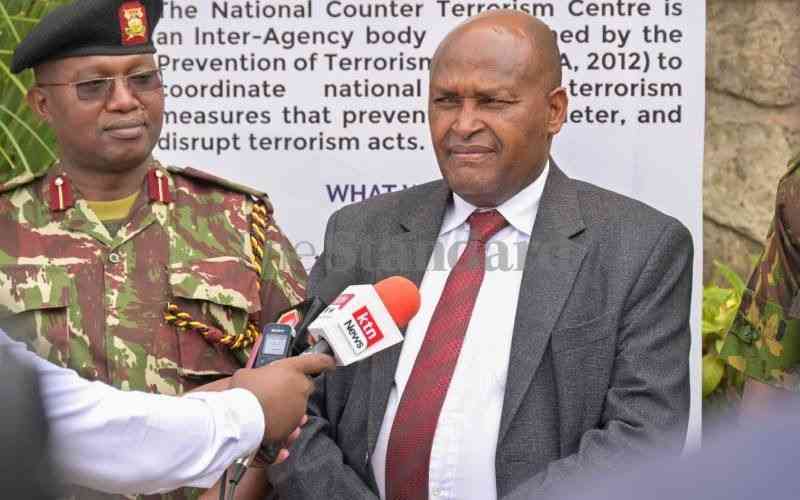×
The Standard e-Paper
Stay Informed, Even Offline

Kenya is on high alert as it doubles efforts in the prevention of terror attacks amid the recent alerts that have been issued.
The National Counter Terrorism Center (NCTC) says it is working in harmony with all actors in the security apparatus and the community to prevent the carrying out of attacks in the country.